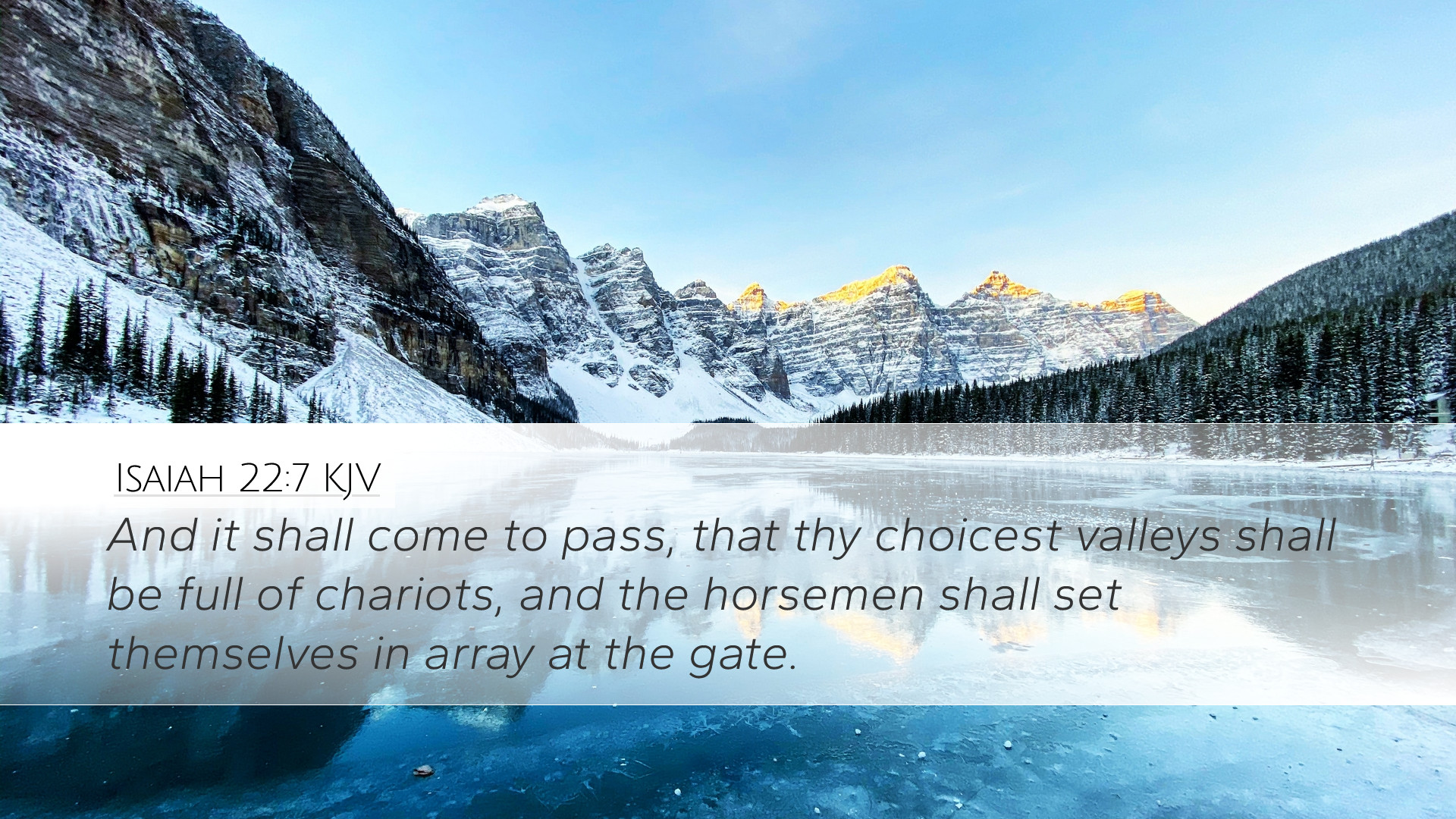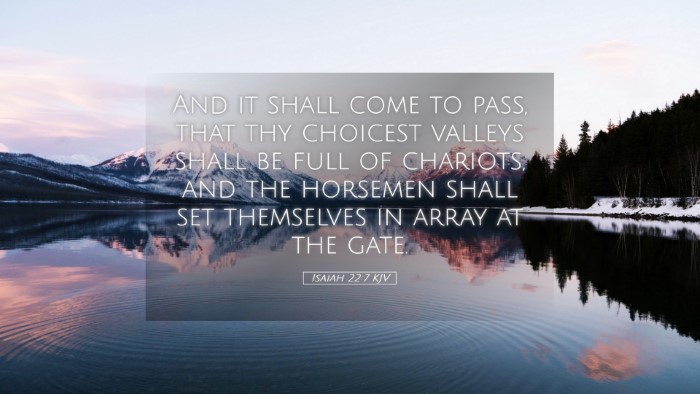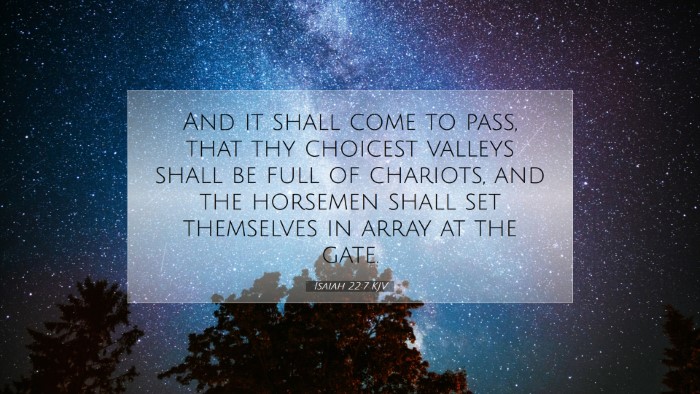Commentary on Isaiah 22:7
Context and Historical Background
Isaiah 22:7 situates itself within a broader prophetic message concerning the impending doom faced by Jerusalem. Written in a time of crisis, this verse is intricately tied to the political and spiritual state of Judah. The surrounding verses communicate God's judgment, primarily due to the people's unfaithfulness and reliance on human strength rather than divine guidance.
Scholars recognize that Isaiah frequently speaks of Jerusalem not just as a geographical location but as a representation of God’s covenant community. This chapter highlights the consequences of neglecting divine wisdom amidst external threats.
The Verse Itself
Isaiah 22:7 states:
"And it shall come to pass that your choicest valleys shall be full of chariots, and the horsemen shall set themselves in array at the gate."
Exegesis and Analysis
This verse vividly depicts a scene of military preparation and impending conflict. The imagery of "choicest valleys" filled with chariots underscores the seriousness of the threat facing Jerusalem. Each element in the verse contributes to a sense of urgency and foreboding.
- Valleys and Chariots: The reference to "valleys" often symbolizes places of vulnerability and weakness. The abundance of chariots signifies the formidable strength of the enemy, indicating that Jerusalem is ill-prepared for the coming siege.
- Horsemen and Battle Array: The imagery of horsemen mustering at the city gates portrays the immediacy of danger. The gates of a city historically represented its defenses and points of entry, thus this portrayal emphasizes the challenge of fortification against external forces.
Theological Implications
In considering the spiritual implications of this verse, a few key themes emerge:
- Judgment: The military scenario serves as a symbolic representation of divine judgment against Jerusalem for its disobedience. The prophetic voice here is a call to awareness regarding the consequences of relying on human prowess compared to divine sustenance.
- Human Weakness: The flourishing presence of military might juxtaposed with the spiritual decay of Jerusalem speaks volumes about human frailty without God. The reliance on worldly security proves futile in the face of God's sovereignty.
Commentary Insights
Matthew Henry
Matthew Henry emphasizes the prophetic nature of Isaiah’s message, interpreting the imagery as a warning against superficial trust in military might. He reminds the readers that true security lies not in earthly preparations but in a covenant relationship with God. The outcome of such trust will always be a mirage unless rooted in divine faithfulness.
Albert Barnes
Albert Barnes contextualizes this verse within the catastrophic events leading to the Babylonian siege. He notes that the description of valleys filled with chariots is a foretelling of invasion rather than mere political unrest. He succinctly captures the idea that Israel's history reveals a pattern of forsaking God for transient alliances and strategic efforts.
Adam Clarke
Adam Clarke takes a more expansive view, interpreting the valleys and chariots not only as metaphorical but also historically linked to specific military campaigns. His insights lead to the conclusion that the burdens of such warfare are indicative of the people's deep spiritual malaise. Clarke's commentary urges the contemporary reader to reflect on the deeper repercussions of abandoning one’s reliance on God.
Application for Today
For pastors, students, and theologians, Isaiah 22:7 serves as a profound reminder of the importance of spiritual vigilance against the allure of worldly power. In contemporary ministry and life, this verse encourages a deep examination of where one places trust—whether in human abilities, governmental power, or societal strength. It beckons us to return to a foundation of faith, highlighting the necessity of aligning personal and communal actions with God's will.
Conclusion
Ultimately, Isaiah 22:7 calls us to reflect on our dependencies and the sources from which we derive our confidence. As we study the insights from Henry, Barnes, and Clarke, we are invited to seek the heart of God in the context of our challenges. The historical and theological richness of this passage offers a lens through which we can engage with God's Word meaningfully and purposefully.


